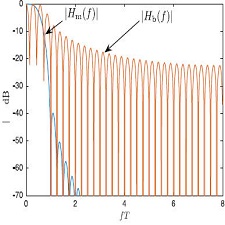توضیحات
ABSTRACT
The earnings management has attracted scholars, researchers, and policy makers’ attention in many countries and has been raised as one of the most important issues for investors and owners of corporate interests. The main objective of this study is to investigate the possible relationship between earnings management incentives and earnings response coefficient. To investigate this matter, a sample of 100 companies have been selected out of companies listed in Tehran Stock Exchange and data required in the timeframe of 2007 to 2013 have been extracted based on the sample companies. In this study, the correlation coefficient was used to analyze the data statistically at 95% level and hypothesis testing was performed with multivariate linear regression model. The findings, according to the results of the first and third hypothesis suggest no relationship between earnings management incentives and earnings response coefficients, and also the results of the second hypothesis test suggest a negative relationship between earnings management incentives and earnings response coefficient in most of the test sub- hypotheses.
INTRODUCTION
The primary purpose of financial accounting is to provide useful information for investors to predict the performance of the economic unit. The need to report earnings as a primary source for investors, executives and analysts’ decision-making has been well documented and earnings report helps to the economy in various ways, such as providing a basis for tax calculation, criteria for evaluating the success of the company’s performance, to determine the amount of divisible earnings, to manage the distribution of earnings, to manage an economic unit and other items. Also, because the value of a company is related to the current and future earnings, the determination of earnings enjoys a great importance (Ansari et al., 2012). The executives often manage the earnings in order to mislead shareholders regarding the company’s actual economic performance. The earnings management which is performed through the manipulation of real activities or accounting figures, reduces the accuracy of the earnings messaging, increases the risk and uncertainty of the people outside the organization and also likely leads to an information asymmetry and reduction in the efficiency of investment. The earnings management, not only hides the company’s actual performance, but also hides the actual process of earnings growth and company’s revenue that is useful in predicting future growth of the company (McNichols & Stubben, 2008).
چکیده
مدیریت درآمد توجه بسیاری از محققان، محققان و سیاست گذاران را در بسیاری از کشورها جذب کرده و به عنوان یکی از مهمترین مسائل برای سرمایه گذاران و صاحبان منافع شرکت ها مطرح شده است. هدف اصلی این مطالعه بررسی رابطه احتمالی بین انگیزه های مدیریت درآمد و ضریب پاسخ سود است. برای بررسی این موضوع، نمونه ای از 100 شرکت از شرکت های ذکر شده در بورس اوراق بهادار تهران انتخاب شده و اطلاعات مورد نیاز در زمان های 2007 تا 2013 بر اساس شرکت های نمونه استخراج شده است. در این مطالعه ضریب همبستگی برای تجزیه و تحلیل داده ها به صورت آماری در سطح 95 درصد و آزمون فرضیه با مدل رگرسیون خطی چند متغیری مورد استفاده قرار گرفت. یافته ها براساس نتایج فرضیه اول و سوم نشان می دهد که هیچ رابطه ای بین انگیزه های مدیریت درآمد و ضریب پاسخ سود، و همچنین نتایج آزمون فرضیه دوم، رابطه منفی بین انگیزه های مدیریت درآمد و ضریب پاسخ سود را در بیشتر موارد آزمون فرضیه های تست
مقدمه
هدف اصلی حسابداری مالی، ارائه اطلاعات مفید برای سرمایه گذاران برای پیش بینی عملکرد واحد اقتصادی است. نیاز به گزارش درآمد به عنوان منبع اصلی برای تصمیم گیری های سرمایه گذاران، مدیران و تحلیل گرها، به خوبی مستند شده است و درآمدهای گزارش ها به روش های مختلف به اقتصاد کمک می کند، از جمله ایجاد مبنایی برای محاسبه مالیات، معیارهای ارزیابی موفقیت عملکرد شرکت، تعیین میزان درآمد قابل تقسیم، مدیریت توزیع درآمد، مدیریت یک واحد اقتصادی و سایر موارد. همچنین، به این دلیل که ارزش یک شرکت مربوط به درآمد فعلی و آینده است، تعیین درآمد اهمیت زیادی دارد (انصاری و همکاران، 2012). مدیران اغلب درآمد را مدیریت می کنند تا سهامداران گمراه کنند در خصوص عملکرد اقتصادی شرکت. مدیریت درآمد که از طریق دستکاری فعالیتهای واقعی یا ارقام حسابداری انجام می شود، دقت پیام پیام را افزایش می دهد، خطر و عدم اطمینان افراد خارج از سازمان را افزایش می دهد و احتمالا منجر به عدم تقارن اطلاعات و کاهش بهره وری سرمایه گذاری می شود . مدیریت درآمد نه تنها عملکرد واقعی شرکت را پنهان می کند، بلکه روند واقعی رشد درآمد و درآمد شرکت را نیز که در پیش بینی رشد آینده شرکت (McNichols & Stubben، 2008) مفید است پنهان می کند.
Year: 2016
Publisher : ELSEVIER
By : Mohsen Hosseini , Kamal Nadafi Chalestori , Saeid Rezahi Hi, Ehsan Ebrahimi
File Information: English Language/ 12 Page / size: 720 KB
Only site members can download free of charge after registering and adding to the cart
سال : 1395
ناشر : ELSEVIER
کاری از : محسن حسینی، کمال نادفی چالستوری، سعید رضایی سلام، احسان ابراهیمی
اطلاعات فایل : زبان انگلیسی / 12 صفحه / حجم : KB 720


![A Study on the Relationship between Earnings Management.[taliem.ir]](https://taliem.ir/wp-content/uploads/A-Study-on-the-Relationship-between-Earnings-Management.taliem.ir_.jpg)





![The Role of Accrual Accounting Basis in the Prediction of Future[taliem.ir]](https://taliem.ir/wp-content/uploads/The-Role-of-Accrual-Accounting-Basis-in-the-Prediction-of-Futuretaliem.ir_-1-150x150.jpg)
![Determinants of Dividend Policy Evidence from Polish Listed.[taliem.ir]](https://taliem.ir/wp-content/uploads/Determinants-of-Dividend-Policy-Evidence-from-Polish-Listed.taliem.ir_-150x150.jpg)
نقد و بررسیها
هنوز بررسیای ثبت نشده است.